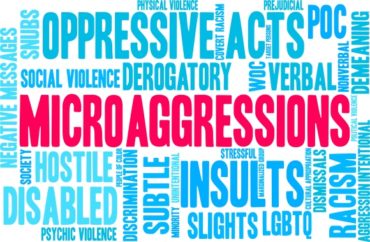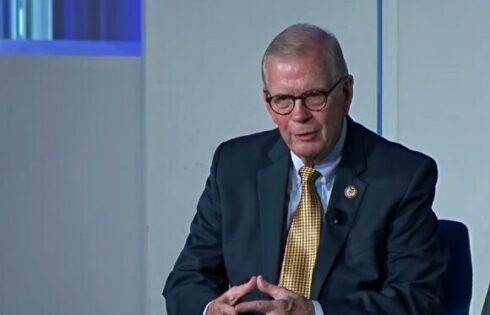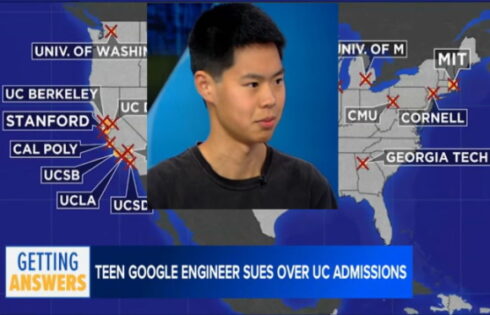
Also: Can be ‘hurtful’ to say ‘hey guys’ to refer to ‘any gender’ other than men
Syracuse University’s Office of Diversity and Inclusion held a workshop on microaggressions this past week which, among other things, discussed how the term has evolved over time.
According to The Daily Orange, eleven university faculty and staff were in attendance to hear ODI officials Christina Papaleo and Carlee Kerr discuss how students might be offended by various statements and gestures.
“While some may believe the road to equity and inclusion is ‘paved with good intentions,’ language that is left unchecked can have a destructive impact,” the “But I Didn’t Mean It That Way” seminar description reads.
“Microaggressions are more than just words; they are subtle acts of exclusion.”
Papaleo said the first microaggressions were “racial specific,” but the concept grew to encompass others such as “indigenous folks [and] disabled folks.”
Papaleo, an “advocate, artistic creator, and disabled woman” who uses her creativity as “a transformational opportunity for her visual impairment to serve as a part of her identity,” said “non-verbal cues” also can be microaggressions.
For example, not looking someone in the eye while speaking to them “could be taken the wrong way” (she didn’t mention Asians aren’t likely to take offense, according to the report), and looking at a disabled person’s service animal might be seen by its owner as a “micro-assault.”
MORE: Professor: Term ‘low-hanging fruit’ is a microaggression because it reminds blacks of lynching
[Papaleo] also said that a similar trend follows the deaf and hard of hearing community, as “looking and talking to a sign language interpreter instead of the person” could be considered a microaggression.
Kerr said that microaggressions can also negatively impact international students, as they can be accused of using artificial intelligence because of a language barrier and other preconceived notions.
“Oftentimes we’ve realized that we do have these biases,” Kerr said. “We do find ourselves kind of believing these stereotypes just from the way that we’ve been conditioned in society. Just reminding ourselves to give ourselves grace because once again, we do live in a society where the media can really dictate how we see the world around us.”
The seminar concluded with a discussion of common terms and situations, like using the term “hey guys” to refer to not just men, but any gender, and how hurtful it can be.
Papaleo said the phrase “hey guys” is a “constant reminder” of how she doesn’t want to feel like she’s in “a male-dominated society all the time.”
Upcoming events from the Syracuse Office of Diversity and Inclusion include “From Performance to Purpose: Engaging in the Creative Process to Reimagine Allyship” (Feb. 26), “Association of Multiracial Discrimination with Drinking Quantity and Negative Drinking Consequences via Emotional Dysregulation among Multiracial College Students” (March 5), and “Complicating Narratives: What Is/What Isn’t Anti-Semitism” (April 2).
MORE: Saying ‘God bless you’ after sneeze listed as microaggression on college’s anti-oppression guide
IMAGE: Arloo/Shutterstock.com
Like The College Fix on Facebook / Follow us on Twitter





Please join the conversation about our stories on Facebook, Twitter, Instagram, Reddit, MeWe, Rumble, Gab, Minds and Gettr.